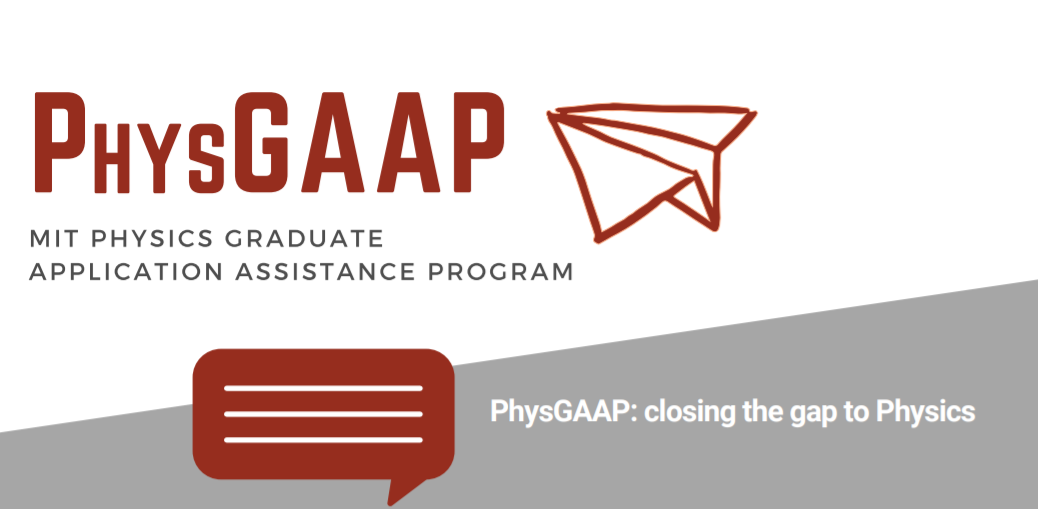PGSC convenes an Admissions Advisory Council, nicknamed GAGA (grads advising grad admissions) whose role is to provide the graduate student perspective to the Chair of Graduate Admissions and advise on improvements to the admissions process.
This PGSC standing committee was formed in Summer 2020 in response to the graduate students’ Strike for Black Lives Recommendations, in parallel to the addition of three graduate students to the admissions committee itself. GAGA spends late spring through early fall working on changes to the process used for selection of candidates; the three committee representatives take part in the process of choosing admitted students each winter.
All physics graduate students are welcome to join GAGA. If you are interested in being part of this committee, please contact physics-gsc-gaga at mit dot edu.
2020 GAGA Session
Department collaborators: Matthew Evans (admissions chair), Sydney Miller (graduate administrative assistant)
Student members: see here
Research conducted
- Weekly meetings with the graduate admissions chair
- Multiple in-depth question-and-answer sessions with the admissions chair to learn about the application and admissions process, as well as criteria considered
- Analysis of past admissions data to inform our efforts
- Surveying current faculty and graduate students to learn perceptions of criteria for graduate student success
New initiatives
- Worked with staff to make significant updates to the webpages for prospective applicants
- Creation of the Physics Graduates Application Assistance Program (PhysGAAP) to help prospective applicants apply to graduate school
- Created a set of slides to present to the admissions committee
- Reworking of the statement of purpose prompt to be more clear in purpose, welcoming, and inclusive
- Addition of an optional personal statement to the application
- Participation in admissions outreach events
